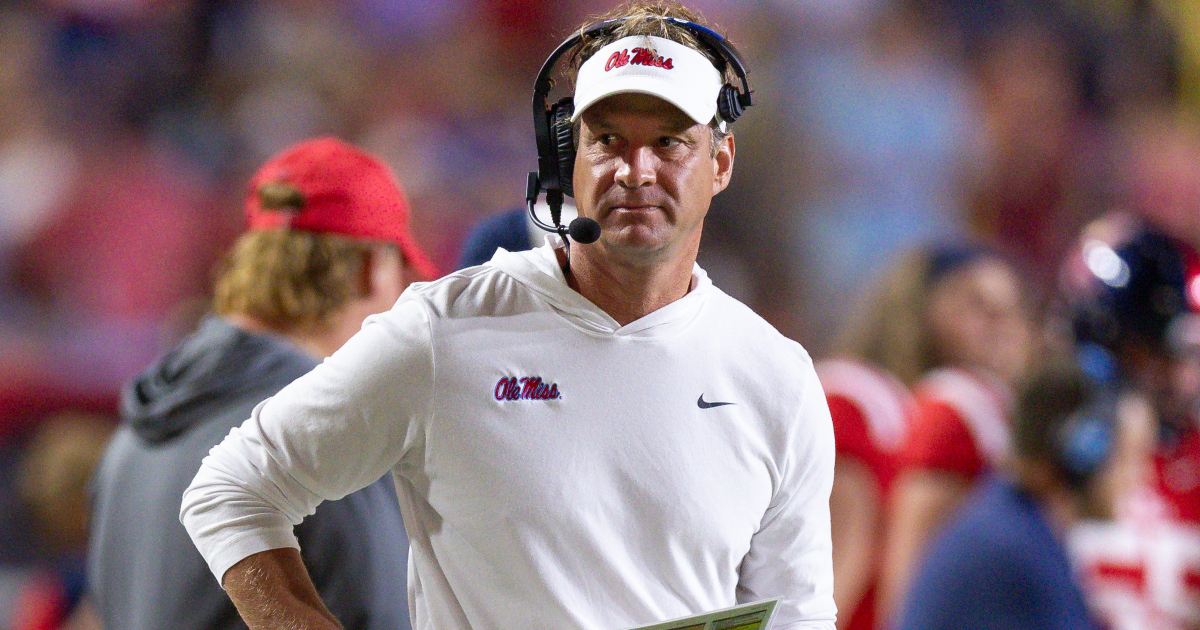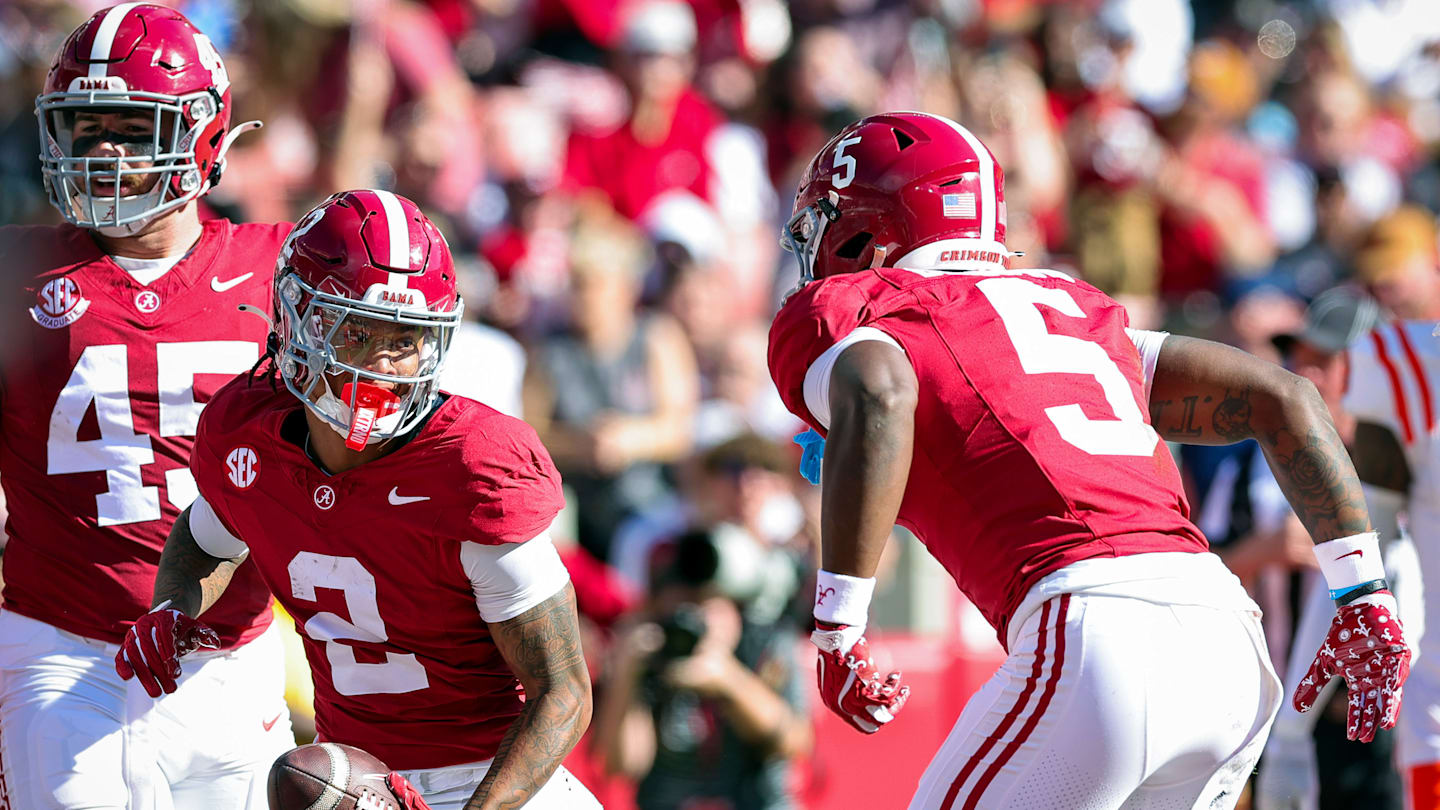Lane Kiffin takes shot at Clemson, ACC, Big 12 over College Football Playoff rankings

After a loss to Florida a week ago, Ole Miss dropped out of the projected 12-team College Football Playoff bracket. But when looking at other teams’ ranking, Rebels coach Lane Kiffin pointed out the impact of strength of schedule, particularly for SEC teams compared to ACC and Big 12 programs.
Kiffin noted the difference of life in the SEC compared to other leagues. The example he used was comparing Clemson’s schedule to Alabama’s. The Tigers enter Week 14 with the No. 57-ranked strength of schedule in the country, according to ESPN’s FPI, while the Crimson Tide came in at No. 11. That’s the second-strongest of the CFP Top 25, only trailing Georgia.
To Kiffin, there isn’t much to compare between SEC teams’ schedules and other conferences. When it comes to hypothetically putting those programs in the conference, he argued their records wouldn’t be as strong.
“We need to play really well, first off. That’s what’s in our control,” Kiffin said on his radio show Wednesday night. “And other things to happen. I’m not gonna get into the whole thing. And I’m not saying because of us. It’s ridiculous, the difference of playing in the SEC and the ACC and Big 12. To see these rankings – I’m not even doing the Ole Miss homer thing.
“To think that you’re looking at schools and you’re talking about, like, Clemson’s schedule and who they played over Alabama. It’s stupid. … I’m not gonna name them. Take some of those teams that are up there that haven’t played anybody and put them down in the SEC, they’re .500 teams.”
The strength of schedule argument ramped up last week ahead of Indiana’s matchup against Ohio State. Ahead of the game, the Hoosiers came in as the No. 5-ranked team despite having the No. 106 strength of schedule, according to ESPN’s FPI. That led to discussions about just how much that metric factored into the rankings.
Speaking with reporters after Tuesday’s rankings reveal, CFP selection committee chair Warde Manuel addressed the amount of weight strength-of-schedule carries. He said it’s a point of conversation, but isn’t necessarily what it all comes down to when discussions end.
“One of the things that we talk about is teams can only play the schedule they have in front of them against the teams that have been, from a conference standpoint, assigned,” Manuel said. “We can maybe be critical of non-conference schedules and those kind of things, but when it gets to the conference, particularly as these conferences have expanded, there are more teams to play throughout the conference. Teams can only play the schedule that’s in front of them. They can only play the opponents that they have.
“So we take the stance that we’re going to really look at these games, we’re going to look at the stats, we’re going to look at the strength of schedule, but we’re also going to look at how teams are performing against the competition that they have. From our perspective, if it was just about strength of schedule, we wouldn’t be needed. You could just take at the end of the season the top 12 teams with the highest strength of schedule and put them against each other. What we’ve been asked to do is to judge and to look at how teams are playing against the competition that they have and to rank them accordingly to how we see it, and that’s the way I would explain how we take a look and we look at the differences even though the schedules and the opponents may be different.”
Related
Does Michigan Football have the experience to make the College…
The Michigan Wolverines made it to the College Football Playoff for the first time in 2021 after beating Ohio State and winning the Big Ten Championship. Sin
Alabama football’s 2025 WR room is giving “Ryde Outs” vibes
Alabama football's WR room stagnated in the final years of the Nick Saban era in Tuscaloosa. The Crimson Tide went from a dominant run of recruiting and develop
Big 12 opener, historic Classic highlights HBCU football schedule
Courtesy of UAPB Athletics PINE BLUFF, AR.– The University of Arkansas at Pine Bluff Golden Lions football team has announced its 2025 HBCU football s
Top ten Ohio State football players entering 2025
There's great news, and just some OK news for the Ohio State football program. The great news is that the Buckeyes made good on their "national title or bust" s












